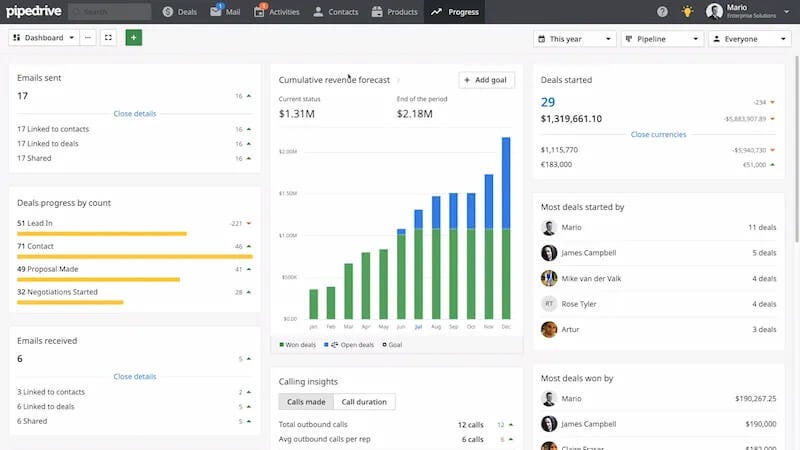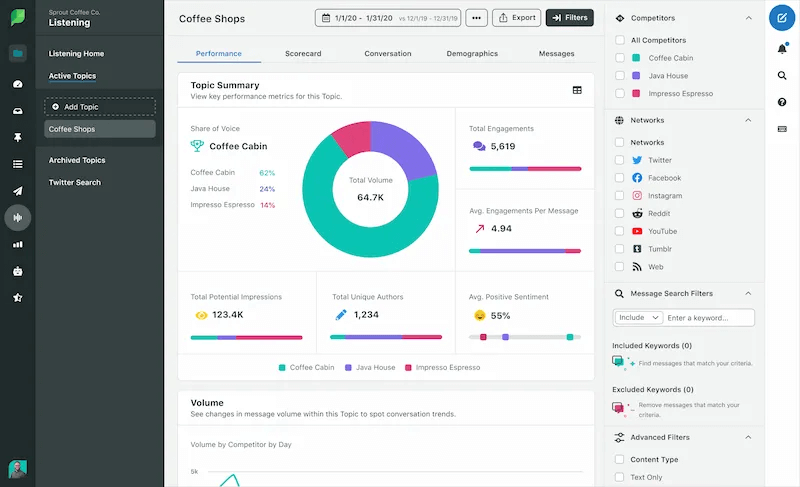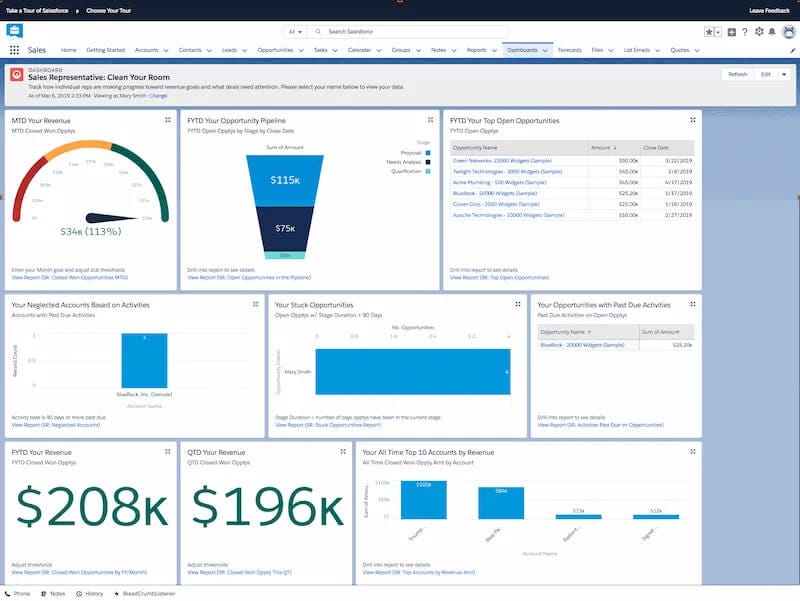Business to Business (B2B) Marketing Automation: Optimize Workflows and Improve Results

By automating repetitive tasks and streamlining complex workflows, businesses can focus more on building relationships and less on manual processes making it an amazing strategy for business-to-business (B2B) marketing.

B2B marketing automation empowers organizations to improve lead nurturing by delivering personalized experiences at every stage of the sales funnel. Whether it’s through email marketing automation, automated lead scoring, or behavioral targeting, businesses can engage prospects with precision and relevance.
A significant advantage of marketing automation is its ability to integrate with tools like CRM systems, enabling smarter campaign management and efficient customer segmentation. This synergy between systems ensures that businesses have a unified view of their prospects and clients, making it easier to track interactions and refine strategies for success.
With strong marketing analytics and ROI measurement, business-to-business marketing automation provides clear insights into campaign performance. Businesses can evaluate what’s working, identify areas for improvement, and optimize their sales funnel for maximum efficiency. By leveraging automation, companies can achieve scalable, data-driven growth while maintaining high levels of customer engagement.
What Is B2B Marketing Automation and Why Does It Matter?
Business-to-business marketing automation is a powerful strategy that leverages technology to streamline and optimize marketing efforts for B2B companies. It automates repetitive tasks, such as email marketing automation, customer segmentation, and lead nurturing, allowing businesses to focus on strategic initiatives. Integrating with tools like CRM systems also ensures seamless workflow automation and better alignment between marketing and sales teams.
Benefits of B2B Marketing Automation
The benefits of B2B marketing automation extend beyond efficiency, helping companies gain deeper insights into their campaigns and improve overall ROI. From lead nurturing to sales funnel optimization, automation helps businesses execute more personalized and effective marketing strategies. This approach not only drives conversions, but also builds long-term customer loyalty.
- Improved Efficiency: Automating repetitive tasks like sending follow-up emails and scheduling social posts saves marketers significant time.
- Better Lead Management: Automated lead scoring ensures sales teams focus on high-value leads, improving pipeline efficiency.
- Enhanced ROI: Businesses gain insights through marketing analytics, enabling smarter resource allocation and higher returns.
With automation, B2B marketers can focus on creative problem-solving while streamlining processes that drive results.
Facilitating Repetitive Tasks with Automation
Automating repetitive tasks allows marketers to maintain consistency while focusing on high-value activities like strategy and creative development. B2B marketing automation tools simplify tasks like email marketing automation, workflow management, and customer segmentation. By eliminating manual inefficiencies, businesses can operate at scale without compromising quality.
- Email Marketing Automation: Automate follow-ups and drip campaigns to ensure consistent communication with leads.
- Customer Segmentation: Use advanced tools to categorize your audience for better-targeted messaging.
- Automated Lead Scoring: Identify and prioritize high-quality leads through automated data-driven evaluations.
Automation ensures consistency, reduces human error, and delivers a personalized experience for potential customers.
Improving Campaign Efficiency and ROI
Business-to-business marketing automation enables businesses to make data-driven decisions and continuously optimize their campaigns. By integrating tools like CRMs and tracking analytics, marketers can refine strategies and ensure resources are allocated effectively. This results in campaigns that are efficient and deliver measurable growth.
- Marketing Analytics: Track key performance indicators like CTR, conversion rates, and customer engagement to make informed adjustments.
- CRM Integration: Align marketing with sales efforts for better collaboration and a seamless customer experience.
- Personalized Marketing: Deliver custom content that resonates with individual customers and drives engagement.
With the right automation strategies, businesses can achieve scalable growth and sustained performance improvements while delivering higher ROI.
How to Implement Marketing Automation in Your B2B Strategy
Integrating B2B marketing automation into your strategy is a great way to drive efficiency and improve lead management. These automations can create better alignment across teams, deliver better customer experiences that create customer engagement, and foster sustained growth.
By automating tasks such as email marketing, lead nurturing, and behavioral targeting, businesses can streamline operations and focus on strategic growth. Here’s how you can implement automation effectively in your B2B strategy.

Defining Clear Business Objectives
To kick off your automation efforts, identify specific goals you aim to achieve. Whether it’s increasing lead conversions, optimizing sales funnel performance, or improving ROI, clear objectives will provide direction.
- Specific Goals: Define measurable outcomes like boosting lead conversions by 20% or shortening the sales cycle.
- Align With Marketing Strategy: Ensure goals align with your broader marketing objectives for seamless integration.
- Track KPIs: Regularly monitor key performance indicators to measure progress.
Defining your objectives ensures that your automation efforts align with your broader business strategy and deliver measurable outcomes.
Choosing the Right Tool Based on Business Needs
There are plenty of platforms such as HubSpot, Marketo, and ActiveCampaign that can facilitate B2B marketing automation for businesses. Choosing the right one will depend on your priorities, needs, and resources.
- Key Features: Look for features such as CRM integration, automated lead scoring, and campaign management.
- Scalability: Choose a platform that can grow with your business and accommodate increasing customer data.
- Cost-Effectiveness: Compare pricing models to ensure the tool fits your budget without compromising essential features.
The right tool ensures your marketing automation efforts are both efficient and scalable, driving long-term success.
Setting Up Workflows and Automation Rules
Once the platform is in place, the next step is creating workflows and defining automation rules. These workflows are the backbone of efficient email marketing automation and lead nurturing.
- Segment Your Audience: Group leads based on criteria like industry, company size, or behavior.
- Automate Engagement: Set rules for follow-up emails, lead scoring, or event-triggered actions.
- Test Your Workflows: Before deployment, run tests to ensure all processes function as intended.
Establishing strong workflows ensures seamless execution of your marketing efforts and minimizes manual intervention.
Ensuring Team Alignment and Training
Automation tools are only as effective as the people using them. Training your team to leverage the platform ensures maximum value.
- Hands-On Training: Provide your team with real-life scenarios to practice using the platform’s features.
- Collaborative Efforts: Align sales and marketing teams to create unified workflows.
- Ongoing Education: Stay updated with new features and tools through webinars or training sessions.
Proper training ensures that your teams are fully equipped to maximize the potential of B2B marketing automation tools.
Benefits of Integrating CRM with Marketing Automation
Integrating CRM with business-to-business marketing automation creates a seamless connection between customer data and marketing efforts. This integration helps businesses streamline processes, improve sales funnel optimization, and deliver highly personalized marketing campaigns. By bridging the gap between marketing and sales, companies can boost efficiency and enhance customer satisfaction.
Enhanced Lead Tracking and Management
CRM integration simplifies lead tracking across the sales funnel, ensuring no lead is overlooked. It automates lead scoring and categorization, helping sales and marketing teams prioritize high-value opportunities. With improved tracking, businesses can better manage leads and focus on conversions.
- Automated Lead Scoring: Automatically evaluates leads based on behaviors, demographics, and interactions, ensuring focus on qualified prospects.
- Efficient Lead Nurturing: Delivers tailored content to leads based on their position in the sales funnel, increasing engagement and conversion rates.
Personalized Campaigns for Better Engagement
Personalization is at the heart of effective marketing, and CRM integration enables hyper-targeted campaigns. By leveraging detailed customer data, businesses can craft unique experiences that resonate with specific segments of their audience, driving better results and stronger customer relationships.
- Targeted Outreach: Use segmentation to create campaigns that appeal to different demographics or behaviors.
- Dynamic Content Delivery: Automatically adjust email or ad content based on user preferences and behavior.
Personalized campaigns significantly enhance engagement and loyalty, building stronger relationships and ultimately increasing ROI.
Sales and Marketing Alignment
Aligning sales and marketing through CRM integration ensures both teams work collaboratively toward shared goals. This alignment eliminates silos, enables smoother lead handoffs, and fosters a more strategic approach to converting prospects into customers.
- Shared Goals and Metrics: Define common KPIs for both teams to focus on, creating a unified strategy for success.
- Improved Handoffs: Automates the process of transitioning leads from marketing to sales, ensuring no potential customer slips through the cracks.
Sales and marketing alignment not only improves team efficiency, but also results in higher-quality interactions with customers.
Increased ROI Through Automation
Automating manual processes with CRM integration frees up time and resources for strategic activities. Businesses can focus on optimizing campaigns and engaging with customers while reducing overhead costs and inefficiencies.
- Cost Savings: Automates repetitive tasks, minimizing the need for manual labor and cutting operational expenses.
- Higher Conversion Rates: Data-driven insights and targeted campaigns ensure a higher return on marketing investments.
Integrating CRM with marketing automation is essential for businesses seeking to grow efficiently. By automating key workflows and delivering personalized experiences, companies can achieve sustained growth and success.
Avoiding Common Pitfalls in B2B Marketing Automation
Implementing business-to-business marketing automation can drive remarkable results, but without the right approach, businesses risk running into avoidable issues. By addressing common challenges such as over-automation, poor updates, and insufficient tracking, you can ensure your automation strategies stay effective and impactful.
Common Issues to Watch For in B2B Marketing Automation
- Over-Automation Reduces Personalization: Automating too many processes can make communication feel robotic, weakening customer relationships. Balance automation with genuine human interaction.
- Outdated Workflows and Tools: Failing to update your automation workflows regularly can result in stale strategies that no longer align with market trends or customer needs.
- Skipping Performance Metrics: Without tracking vital metrics like ROI, conversion rates, or engagement levels, it’s impossible to know if your campaigns are truly successful.
By avoiding these mistakes, your B2B marketing automation strategy can remain relevant, efficient, and aligned with your business objectives. Regular audits, performance monitoring, and a balance of automation and personalization are essential for long-term success.
Measuring ROI in B2B Marketing Automation
Evaluating the return on investment (ROI) of business-to-business marketing automation is crucial for understanding how effectively it supports your business goals. With the right metrics and tools, businesses can assess campaign performance, identify areas for improvement, and allocate resources wisely. Measuring ROI also highlights how automation impacts customer acquisition, lead nurturing, and overall revenue growth.
By using actionable data, businesses can refine their automation strategies to deliver better results. Tracking key metrics such as conversion rates and campaign costs ensures that each effort contributes to long-term success while optimizing resources.
Key Metrics for Measuring ROI
Tracking essential metrics is vital to evaluate the success of B2B marketing automation campaigns. These metrics reveal the effectiveness of your workflows and help optimize future strategies.
- Conversion Rates: Measure how many leads turn into paying customers through automated workflows.
- Lead-to-Customer Ratio: Assess how effectively leads are nurtured and moved through the sales funnel.
- Email Open and Click-Through Rates: Track the engagement levels of automated email campaigns.
- Campaign Performance: Compare the revenue generated by campaigns to the cost of marketing automation tools.
- Cost Per Lead (CPL): Evaluate how much you spend to acquire a qualified lead.
By monitoring these metrics regularly, businesses can identify which aspects of automation are delivering the best results and refine underperforming areas for maximum impact.

Best Practices for Lead Nurturing Through Automation
Lead nurturing is an essential aspect of B2B marketing automation. It involves building and maintaining relationships with prospects through consistent, relevant communication. Automation tools make this process efficient by streamlining tasks like follow-ups and personalized content delivery. To ensure effective lead nurturing, businesses must focus on tailoring their strategies to address customer pain points and provide value at every stage of the sales funnel.
Key Strategies for Lead Nurturing
By implementing procedures, businesses can create a structured and efficient lead nurturing process. Automation tools not only save time but also ensure that leads receive timely, personalized communication. This approach enhances the customer experience and supports long-term business growth.
- Automated Lead Scoring: Use automation tools to assign scores to leads based on their behavior and engagement levels. This helps prioritize high-value leads for your sales team.
- Segmented Campaigns: Develop personalized marketing strategies for different customer segments. Segmentation ensures prospects receive relevant information that aligns with their needs and stage in the sales cycle.
- Email Marketing Automation: Schedule timely follow-ups with automated email workflows. This keeps your brand top of mind while moving prospects closer to conversion.
- Behavioral Targeting: Monitor user activity to deliver targeted content. For instance, if a lead visits a specific product page, follow up with an email providing additional information or a case study.
- Content Mapping: Align your content strategy with the buyer’s journey. Share educational content for early-stage leads and detailed solutions for those closer to making a decision.
Consistent and thoughtful nurturing builds trust with leads, improves engagement, and increases the likelihood of conversion.
Takeaway
Business-to-business marketing automation can streamline workflows, improve lead nurturing, and drive overall business efficiency. By automating repetitive tasks such as email campaigns, lead scoring, and behavioral targeting, businesses can focus on building stronger customer relationships and optimizing their sales funnel. This not only saves valuable time, but also ensures that marketing efforts are both personalized and impactful.
For long-term success, businesses must regularly evaluate their automation strategies, track key metrics, and adapt to changing customer needs. When implemented effectively, business-to-business marketing automation enhances engagement, increases ROI, and aligns marketing and sales teams toward shared goals. Now is the time to embrace automation and create smarter, data-driven marketing campaigns for sustainable growth.
Frequently Asked Questions
What is B2B marketing automation, and how can it benefit my business?
Business-to-business marketing automation involves using tools to automate repetitive marketing tasks such as email campaigns, lead scoring, and customer segmentation. It benefits businesses by improving efficiency, personalizing outreach, nurturing leads effectively, and driving higher ROI through targeted and consistent communication.
How do I choose the right marketing automation tool for my company?
To choose the right tool, assess your business goals, budget, and required features like CRM integration, email automation, and analytics. Compare options such as HubSpot, Marketo, or ActiveCampaign based on ease of use, scalability, and customer support. Always opt for a platform that aligns with your marketing strategy.
How does CRM integration improve marketing automation efforts?
CRM integration with marketing automation allows seamless data sharing between sales and marketing teams. It improves lead tracking, enables personalized communication, and ensures that every customer interaction is consistent and meaningful. This alignment enhances customer engagement and optimizes the sales funnel.
What metrics should I track to measure the success of my marketing automation?
Key metrics include conversion rates, lead-to-customer ratio, email open and click-through rates, and ROI. Additionally, track behavioral analytics such as website engagement and campaign performance to identify areas for improvement and ensure your automation efforts deliver results.
Can marketing automation be customized to fit my business’s unique needs?
Yes, marketing automation can be tailored to suit your specific workflows and goals. Tools often offer features like workflow customization, dynamic content, and behavioral targeting, enabling businesses to personalize campaigns and adapt to unique customer journeys for better results.